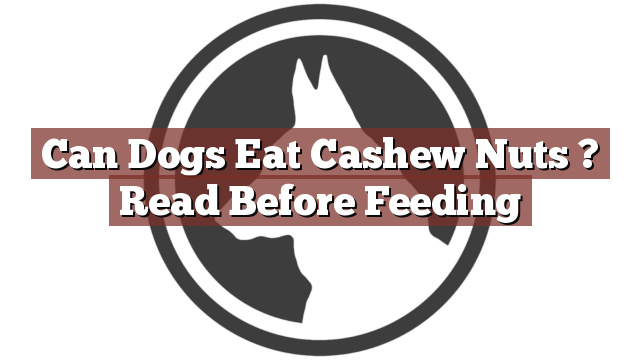Understanding Your Dog’s Dietary Needs
As responsible pet owners, it is crucial to understand our dogs’ dietary needs to ensure their well-being. Dogs are omnivores, meaning they can eat a variety of foods, but their primary diet should consist of high-quality dog food formulated specifically for their nutritional requirements. While it may be tempting to offer our furry friends some of our favorite snacks, it is essential to be cautious and research before introducing any new food into their diet.
Can Dogs Eat Cashew Nuts? Read Before Feeding
Can dogs eat cashew nuts? This is a common question among dog owners, especially those who enjoy snacking on these delicious nuts. The answer is yes, dogs can eat cashew nuts, but with some precautions. Cashews are safe for dogs to consume in moderation, provided they are unsalted and not coated in any seasonings or additives. However, it is important to remember that cashews should never replace a balanced and complete diet for your dog.
Pros and Cons of Feeding Cashew Nuts to Dogs
While cashew nuts can be enjoyed by dogs, there are several pros and cons to consider before incorporating them into your pet’s diet. On the positive side, cashews are a good source of protein, healthy fats, and essential minerals like magnesium and phosphorus. These nutrients can contribute to your dog’s overall health and well-being. Additionally, some dog owners use cashews as training treats or as a healthy alternative to store-bought dog treats.
However, it is crucial to be aware of the potential drawbacks of feeding cashew nuts to dogs. Cashews are high in fat, and excessive consumption can lead to weight gain and digestive issues. Moreover, the shape and hardness of cashews can pose a choking hazard, especially for small dogs. Additionally, the salt content in salted cashews can be harmful to dogs, as it can lead to sodium ion poisoning. Therefore, it is crucial to only offer unsalted cashews to your furry friend and feed them in moderation.
Conclusion: Considerations for Feeding Cashew Nuts to Your Dog
In conclusion, while dogs can eat cashew nuts, it is important to exercise caution and moderation. Always opt for unsalted cashews, as salted varieties can be harmful to your dog’s health. Additionally, ensure that cashews are not a significant part of your dog’s diet, as they should primarily rely on a well-balanced dog food. If you decide to offer cashew nuts to your dog as an occasional treat, monitor their intake and watch for any adverse reactions. As always, consult with your veterinarian to ensure you make informed decisions regarding your dog’s dietary needs.
Thank you for taking the time to read through our exploration of [page_title]. As every dog lover knows, our furry friends have unique dietary needs and responses, often varying from one canine to another. This is why it's paramount to approach any changes in their diet with caution and knowledge.
Before introducing any new treats or making alterations to your dog's diet based on our insights, it's crucial to consult with a veterinarian about [page_title]. Their expertise ensures that the choices you make are well-suited to your particular pet's health and well-being.
Even seemingly harmless foods can sometimes lead to allergic reactions or digestive issues, which is why monitoring your dog after introducing any new food item is essential.
The content provided here on [page_title] is crafted with care, thorough research, and a genuine love for dogs. Nevertheless, it serves as a general guideline and should not be considered a substitute for professional veterinary advice.
Always prioritize the expert insights of your veterinarian, and remember that the health and happiness of your furry companion come first.
May your journey with your pet continue to be filled with joy, love, and safe culinary adventures. Happy reading, and even happier snacking for your canine friend!

